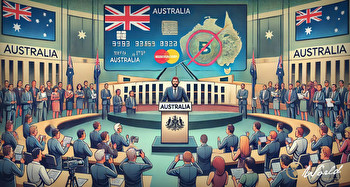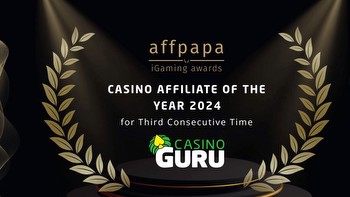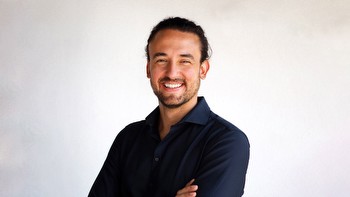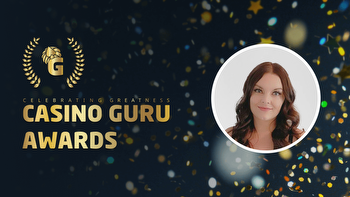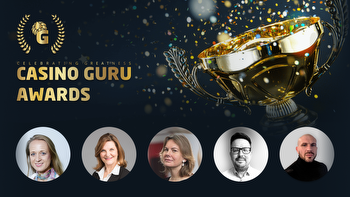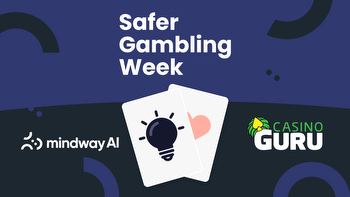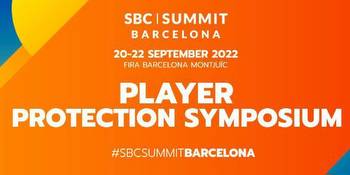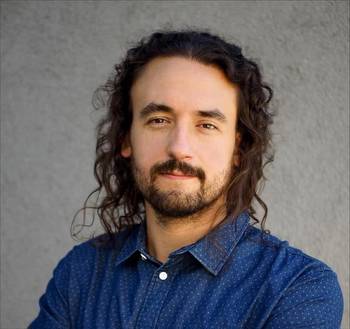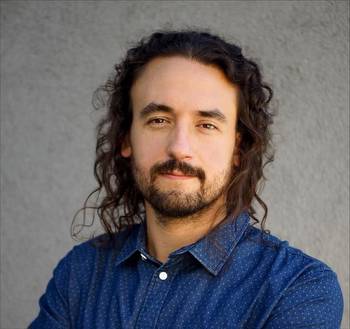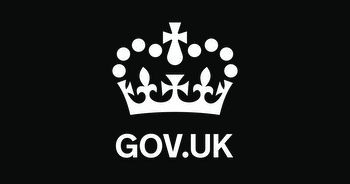Casino Guru's Šimon Vincze on How Problem Gambling Can Become a Thing of the Past

We sit down and speak with Casino Guru’s Šimon Vincze, the man behind the company’s sustainable online gambling and reducing gambling-related harm juggernaut. Vincze most recently, a massive campaign that intends to tackle problem gambling with the participation of industry stakeholders and build a future where gambling-related harm is no longer an issue. Find out who Vincze is and how he is reshaping the industry.
Q: Simon, can you tell us a little more about yourself and what you do as part of Casino Guru’s team?
I passed the milestone of thirties last year, and I have an amazing wife and two extraordinary kids. I like to stay active and spend my days doing various activities rather than either working or relaxing. Sport helps me feel good and perform better. Besides that, I always enjoy watching a good movie or reading a few pages of factual literature.
At Casino Guru, I am currently leading projects connected to sustainable online gambling and reducing gambling-related harm across the company’s portfolio. This includes the notorious projects of the Global Self-Exclusion Initiative and Casino Guru Academy. Moreover, I am overseeing most of the operations related to the safer gambling area and gathering intel across our departments to use the findings in my projects. I also work with a team of designers, content writers, and programmers to compose tangible things such as websites, articles, or various tools for those seeking help.
Before joining Casino Guru, I worked in the conference industry as an event producer. During my college years, I also managed an ice hockey team competing in the European University Hockey League. We were national champions in our top season and even though we only made it to the silver medal, it was a hell of a time.
Q: Casino Guru recently revealed the blue paper for the Global Self-Exclusion System (GSES), a massive undertaking to improve global player protection standards. Can you tell us more about GSES and where it stands today?
The proposed structure of the Global Self-Exclusion System comes from the Initiative that we launched a year ago. Thanks to our global presence and active approach toward sustainable online gambling, we saw a gap in the current self-exclusion options, practically overseen by the rest of the industry. The gambling industry is missing a system with the possibility to self-exclude internationally. In other words, every available self-exclusion system can easily be circumvented by playing at offshore operators. Based on this realization, we started working on increasing awareness, opening discussions, and calling for collective action to combat this problem. I have personally spent countless hours talking with industry experts about the issue, trying to find a solution for such a complex topic. All findings I managed to gather are now reflected in the blue paper.
The document realistically describes how a global self-exclusion system can work in the world’s current state of online gambling. We outlined the technical specifications and application of the system, as well as the reasoning behind the proposed narratives and their benefits for players. We introduced some unconventional ideas to overcome specific issues, all with promising results. And what’s more, the implementation of the system on the operator’s side, alongside the verification process, is very simple and straightforward.
Q: How far is Casino Guru from implementing the GSES and ensuring that it works as intended?
We are missing one crucial piece of the puzzle before being able to think about launching the system. In order to operate the system globally in an effective way, a general set of rules for self-exclusion is required. This is essentially because details of the self-exclusion process vary highly across jurisdictions. If you compare 10 regulated markets, you will find 10 different sets of self-exclusion periods. Unfortunately, the same is true for comparing other self-exclusion parameters. The online gambling industry lacks international standards for self-exclusion, and our next step is to develop them.
I am currently forming a workgroup of industry experts with various backgrounds and experiences. Their task will be to develop the desired set of rules and processes, making the self-exclusion procedure at the GSES as efficient as possible. The valuable knowledge of the expert panel, combined with a series of consultations and workshops they’ll hold, shall result in the International Self-Exclusion Standards. I believe that we can make this a reality by the end of 2022.
Q: What motivated you to work on the GSES and how do you see it changing the industry once it’s fully operational?
When I joined Casino Guru, I was amazed by their principles and overall approach to doing business in the online gambling industry. Their ability to push online operators to make changes and become fairer and more responsible really took my breath away. I was genuinely convinced that we would be able to make a considerable change with our Global Self-Exclusion Initiative.
Then I started hitting walls. The enthusiasm from our impact slowly faded away as I was discovering more and more challenges resulting from my discussions with industry experts. Moreover, I was often met with a complete lack of interest or trust when reaching out to the industry stakeholders. Only a few of them were open enough to show genuine interest, not to mention being brave enough to have any public connection with the Initiative. There were times when I was in two minds about further progress.
Fortunately, thanks to my colleagues and a few dedicated people from the industry, I was able to shake it off. We put our heads together and found a way for the system to work. Now I understand that we simply had to prove ourselves, since running such a project by an affiliate company might be easily perceived as peculiar to say the least.
Q: What are the biggest challenges you face in your everyday work in order to make the GSES achieve its intended goals?
I believe one of the biggest challenges overall is the length of the race toward a functional global scheme. As the system relies on voluntary actions, it needs to show and prove its benefits consistently to be implemented by a critical mass. I am talking mainly about operators, but this applies to a broader community of industry stakeholders as well as players. There are no shortcuts, and a process like this takes time.
However, being a company that features both developers and data scientists, we were constantly thinking of possible ways to hack it. How can we bring some value even before the GSES is fully widespread? Thanks to the feedback from people approaching us with difficulties to self-exclude from multiple accounts in various jurisdictions, we realized we can actually help them now.
So, to provide a helping hand to struggling players prior to the finalization of the GSES, we started working on the Global Self-Exclusion Assistance Tool (GSEAT). Thanks to our vast database and information about the self-exclusion possibilities at every online operator, players will be able to go through the oftentimes painful self-exclusion process with a lot less friction. The best thing about the Tool is that it we can do everything by ourselves and bring immediate value to those struggling.
Q: What message you want to send to industry stakeholders who may be hesitant about the GSES today?
Read the blue paper and dedicate a few minutes of your time to imagining a world where blocking one’s access to all gambling opportunities is a possibility. No one wants addicted players gambling at their sites, and even the operators from offshore jurisdictions are starting to see the benefits of sustainable and responsible operations. Problem gamblers will never contribute positively to that.
The proposed implementation requirements for operators are not demanding, and most risks are mitigated. Even though the system is not fully ready yet, their support and contribution are vital to successfully reach the finish line. What’s more, most of the big operators have licenses that accept players from many different states not covered by any wider self-exclusion schemes, so being a part of GSES can make a huge difference in protecting them.








